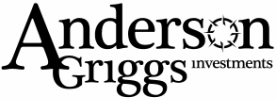|
Things are better and the future is brighter, but everything is still a little chaotic. Chaos is found in each of our different, partitioned pieces of life, be that our country, state, city, workplace, or individual homes. Even though we’ve had the pandemic to blame a big portion of the chaos on over the past year and a half, I believe we would all agree that when we get down to it, life in general is pretty chaotic. With or without a global pandemic, or warring political parties, administrations, and countries… life is messy, and a big portion of our time and energy is futilely spent trying to tame it. That has been very evident for me and my family recently. My wife, as a pharmacy technician, has survived the chaos of directly working with people and the vaccine over the course of the pandemic. I’ve been on guard here at the office, along with the rest of the team, battling the politicians, the markets, and the media. At home, my six year old has become too smart for his own britches. He tells me I’m wrong about something, and then does an internet search to prove it to me. And this past week, the chaos at my home reached a crescendo. We felt it would be a good idea to allow Carter to have a pet… and somehow ended up with two kittens. Want to know how to make a daddy dance in the morning? You unleash two four inch tall, spring bladed whirlwinds on his bare feet while he takes too long to get the kitten breakfast served. We ended up with two kittens instead of one because we were worried about a single kitten being alone and lonely all day while we were out of the house. While that was a nice idea, most of the new responsibility has fallen upon yours truly, not to mention that I’m currently covered with countless tiny little scratches. But, I have to admit that when they are sleeping on my chest after a long day they are quite cute and soothing. Although we tend to mostly see the destruction amidst the chaos, there truly is creation balancing it all out. We know a number of businesses, from small to large, were casualties of the pandemic. However, there was also a record number of business applications filed in 2020, more than any year on record. Applications were up 24% over 2019, and this exceptional growth continues into 2021 and is estimated to lead to lasting job growth. Although we hear about businesses hurting for employees, as of the last business day of March there were 8.1 million jobs available. Once people’s reasons for remaining out of the workplace change, there will be jobs available for those who need to work. For all of the profits that were destroyed, new profits have been created. FACTSET is showing a blended earnings growth rate for the S&P 500 of 49.4% for the first quarter of 2021. If that is the final rate after the remaining companies report, it will be the highest year-over-year earnings growth rate reported since the first quarter of 2010. This profit growth, along with fiscal stimulus around the world, is leading to a big boom in corporate capital expenditures. Businesses are spending more to improve efficiency and to support growth into the future. In April, the U.S. personal savings rate hit a record 32.2%. This was paired with a big drop in consumer spending the month before, but these savings serve as both a source of confidence for future uncertainty as well as to meet the exploding demands of people going back into the world. We all know, however, that everything is not perfect. The two big fears the media tells us we need to worry about are real… taxes and inflation. In recent conversations with a number of you, the quote “Nothing is certain but death and taxes” has made an appearance. We all have a little more mindful experience with taxes as opposed to inflation. Taxes are present at the cash register and are prominent in April (or May!). I can’t say inflation is a certainty because sometimes there is deflation, but usually there is a general uptrend in prices. Just like chaos and taxes, inflation is also just another part of life. No one likes extreme and abrupt changes, and unfortunately we have the threat of big changes coming in terms of these two very distasteful subjects. You may remember we had the tax conversation during the 4th year of Trump’s presidency. There was a lot of talk then about changing investment portfolios for an upcoming Democratic administration. Our current take on things today is the same. So far, the tax changes indicated in The White House’s published “American Families Plan” have not been passed yet. What finally gets approved could look drastically different than what has been proposed. Until we know how things lie, any course of action would simply be a guess. But we do know change for the taxing of investment returns, and changes to taxing of estates is front and center. We are paying attention. When we do know how things end up, we will let you know what, if any, changes to the investment management of your portfolios is required to meet our goals of preserving your wealth and growing that wealth into the future. As to the threat of inflation, I’d like to share some words by Warren Buffet. This is part of a piece he wrote back in May of 1977, titled “How Inflation Swindles the Equity Investor.” Despite this being 44 years old, the economic and political similarities are striking: The Number Nobody Knows Which brings us to the crucial question - the inflation rate. No one knows the answer on this one - including the politicians, economists, and Establishment pundits, who felt, a few years back, that with slight nudges here and there unemployment and inflation rates would respond like trained seals. This section of Mr. Buffet’s piece is a useful warning to both politicians and to “we the people,” who vote for our representatives. No one knows the future, and no one knows how the current level of fiscal and monetary stimulus will affect inflation. But we can probably all agree that as it stands today, if not kept in check human nature probably steers us incorrectly in relation to inflation.
Buffet’s full piece is about 17 pages long, and although the title is a bit ominous, it teaches us that inflation is always a part of the investment process. It factors into corporations investing for their future, as well as individual investors investing their own savings. The more inflation that is present, the less real rate of return any of us earns, but that doesn’t mean you simply don’t invest. You may adjust what and how you invest, but doing nothing (keeping savings under the mattress) is at least a guaranteed loss of purchasing power equal to the inflation rate. As it stands now we don’t believe a major shift in our investment philosophy or allocation is needed. We currently agree with the Federal Reserve’s call for this current uptick in inflation to be transitory. We have a lot of lopsided demand and production imbalances that should hopefully work themselves out soon. Although corporations are indicating inflation as a concern, they have benefited from record low borrowing rates and continue to be confident enough in the future to commit capital to growth. I’ll leave off with one final technical observance relating to prices and the market. As we’ve said many times before, we prefer to buy our companies at a discount. We want to avoid joining the buy high sell low club. The “stock market” right now is high based on any number of historical valuation methods. However, as we have often said, each individual corporation is not the market (just as the market is not the economy). The current average Price-to-Earnings ratio (P/E) of the S&P 500, using 12 month forward earnings estimates from Zacks Investment Research, is 25.28. This means if you buy the S&P 500 index you are paying 25.28 “times” the average estimated earnings-per-share of all the companies within the index together. If we look at the same P/E ratio of our common stock investment portfolio using 12 month forward earnings estimates we get 18.88. So in comparison, our companies are currently priced at a roughly 25% discount to the market as a whole (note, companies with data that was missing or invalid were removed for calculating these figures). There is no guarantee offered in this figure, but it does indicate we are not “overpaying” as much for our companies as the market as a whole represents. In addition, if history and “reversion-to-the-mean” offers us any guidance, this discount may offer some defense in a market correction. Uncertainty, taxes, inflation, and kittens are all a part of the chaos of normal life. There is no such thing as a fully tax or inflation protected investment portfolio. We must work with what we know today, and adjust as the chaos changes around us. Many of you already call when you have concerns with something you’ve seen on the news or read on the internet, and I urge you to continue to do so. We do not have a crystal ball, but we are paying attention, and we will share with you what we know and let you know when we feel a change is warranted. Until then, enjoy your summer. If it is time for a vacation and you are able, enjoy! Justin Anderson Comments are closed.
|
Kendall J. Anderson, CFA, Founder
Justin T. Anderson, President
Categories
All
Archives
April 2024
|
|
Common Sense Investment Management for Intelligent Investors
|



 RSS Feed
RSS Feed